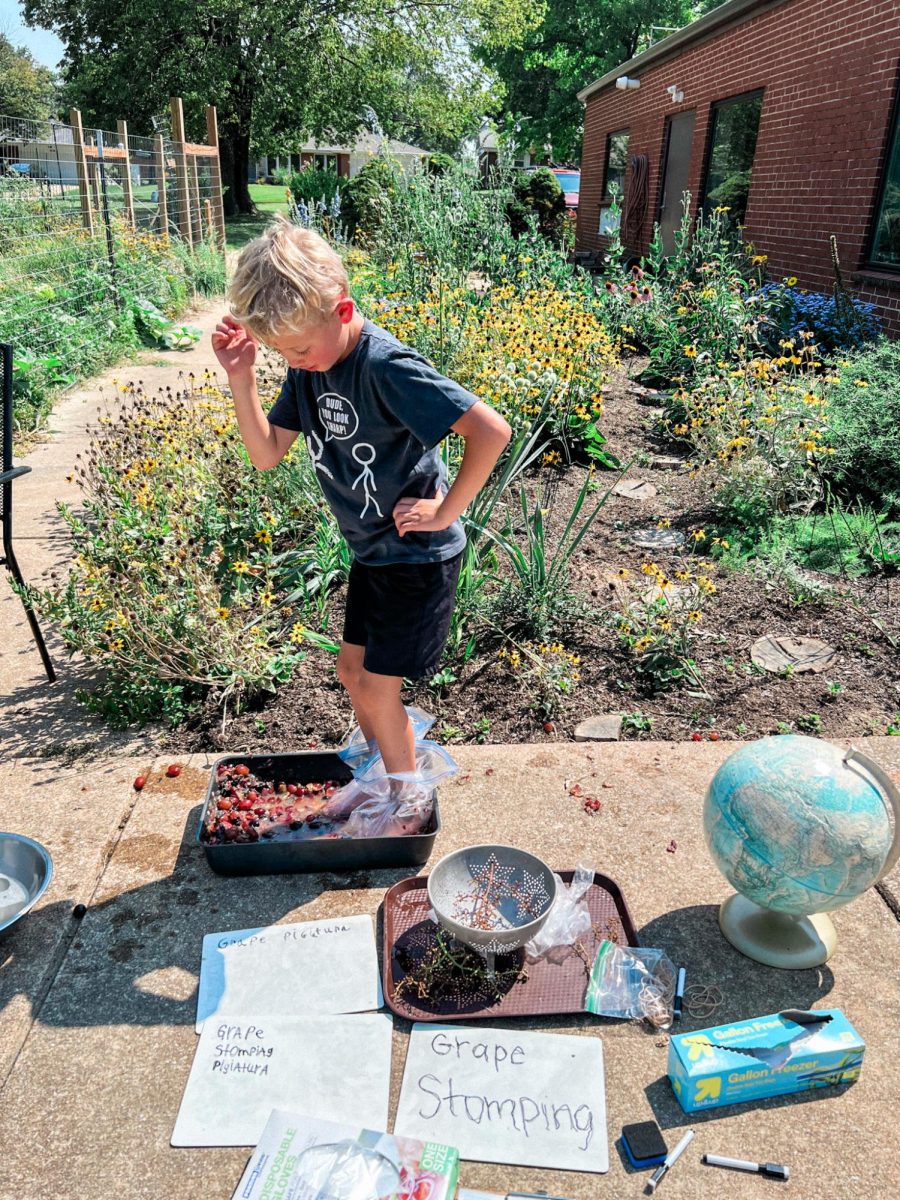April Maura Robert has long known she was meant to be an educator.
Growing up, she found her passion by playing “teacher” with her stuffed animals and a chalkboard. This led the Arizona native to attend Arizona State University in Phoenix, where she pursued a degree in elementary education.
“When I first started the program, it was multicultural, multilingual because I have a huge heart for travel and culture – I just love it,” Robert said. “They changed it to ESL, but the cohort for that endorsement was only about 15 women with four professors, versus the regular elementary ed program, which had 700-plus students. They taught us more unconventional, alternative education, like Montessori and Reggio Emilia.”
After graduation, Robert entered the school system ready to make a difference. However, she found it was not what she had anticipated.
“It was nothing like what I expected. It didn’t seem like it was the best for the child, and it didn’t align with my heart,” she said.
She then left the public school system and embarked on various educational journeys, from homeschooling to inner-city tutoring and teaching in China.
After the birth of her first child, Robert and her husband moved to St. Louis, where she was drawn again to alternative and holistic education. This inspired her to establish Little Leaders Academy, a nature-based microschool influenced by Montessori, growth mindset and Reggio Emilia approaches.
“I dreamed of a place that nurtured the whole child — mind, body, emotions and relationships. Little Leaders Academy embodied that dream — a place where children embrace growth, develop an entrepreneurial spirit and explore diverse learning approaches,” Robert wrote on the school’s website.
Currently, six students, from pre-kindergarten to fifth grade, are enrolled in Little Leaders Academy. The school started in Robert’s home in February 2020, but on June 1, it relocated to the Episcopal Church of the Advent at 9373 Garber Road. The school has no affiliation with the church; the location was chosen for its large outdoor space and proximity to Whitecliff Park, which is essential for its nature-based learning.
“Everything happens outside,” Robert said. “We embrace ice and snow, and I incorporate them into our activities. On rainy days, we enjoy and fully embrace the mud, water and play.”
In addition to outdoor learning, Little Leaders Academy emphasizes “nurturing habits” such as daily affirmations, mindful breathing and yoga. Students practice core subjects like science, math, writing, reading and cultural studies daily, with a strong focus on entrepreneurship and play.
“We do a lot of STEM. Like Waldorf, we stay with a subject—our nature studies and cultural studies—for a whole month. For example, this month, we’re doing chemistry in nature studies and studying Italy for cultural studies. Last week, we did grape stomping for Italy and mini-labs with dancing bubbles for chemistry,” Robert said.
As with many microschools, Little Leaders Academy does not require standardized testing, though families can choose to test their children if necessary.
“There are misconceptions about the academic rigor. Studies show that whether you’re homeschooled or in a microschool, since you’re going at the child’s level, their scores are often higher overall,” Robert said. “Most importantly, kids come to me loving to learn. A 4-year-old loves to learn, but in traditional schools, by third grade, that passion declines drastically. I want to fuel that love.”
Another difference from traditional schooling is that students of all ages learn together and are not separated by grade.
“I understand the traditional model of separating students by grade, but there’s so much growth when they are mixed ages. It allows for leadership opportunities,” Robert said. “Because we’re so small, no child goes unnoticed—they are seen, and they are known.”
“I think traditional school isn’t going to prepare students for what’s to come. Many parents may not be aware of how advanced technology is, and the jobs their children will have don’t exist yet. We need kids who can think and be creative,” Robert added. “Microschools are rising because they provide a solid foundation in problem-solving, which will take children further in life and prepare them for the future.”




